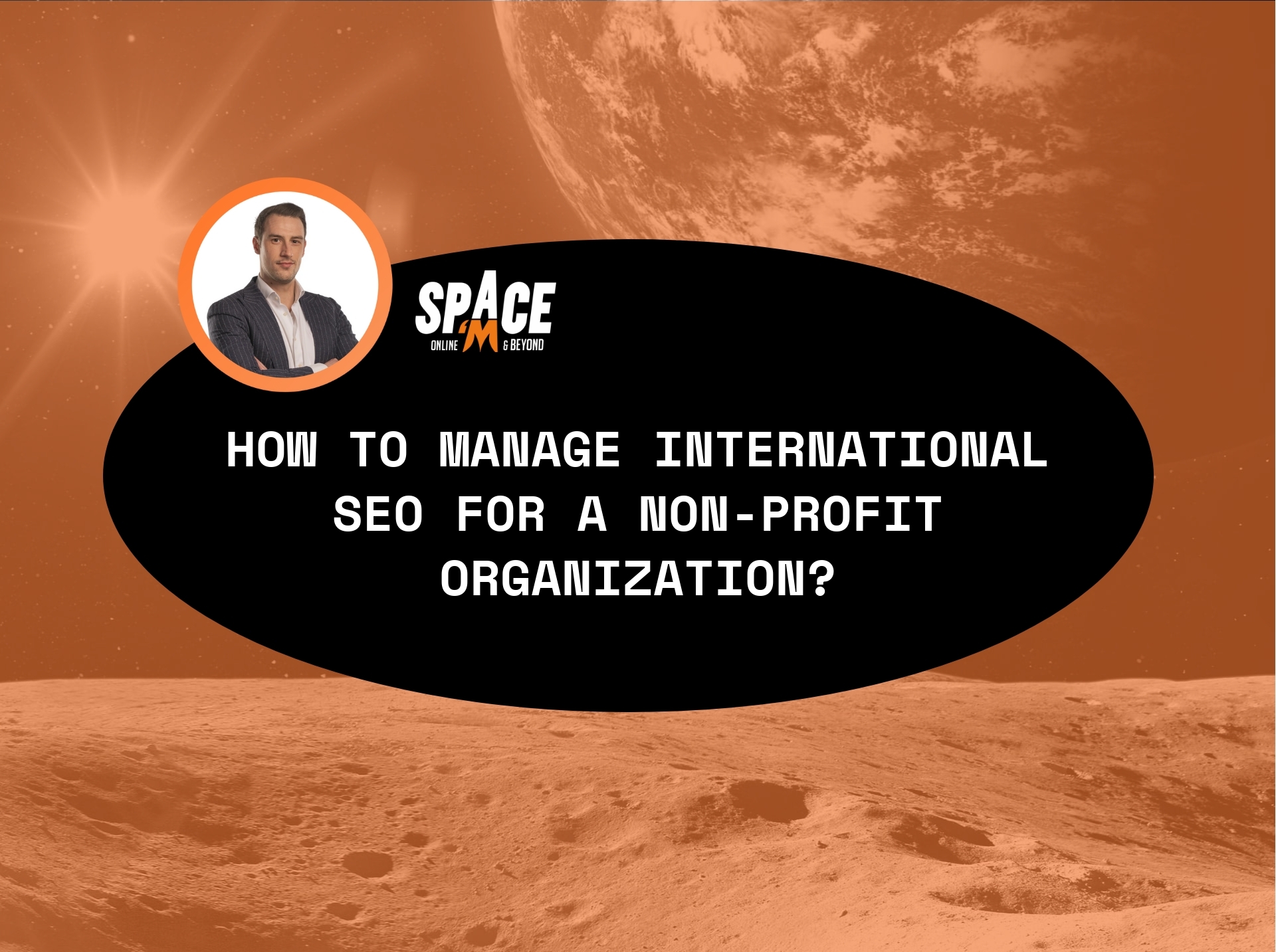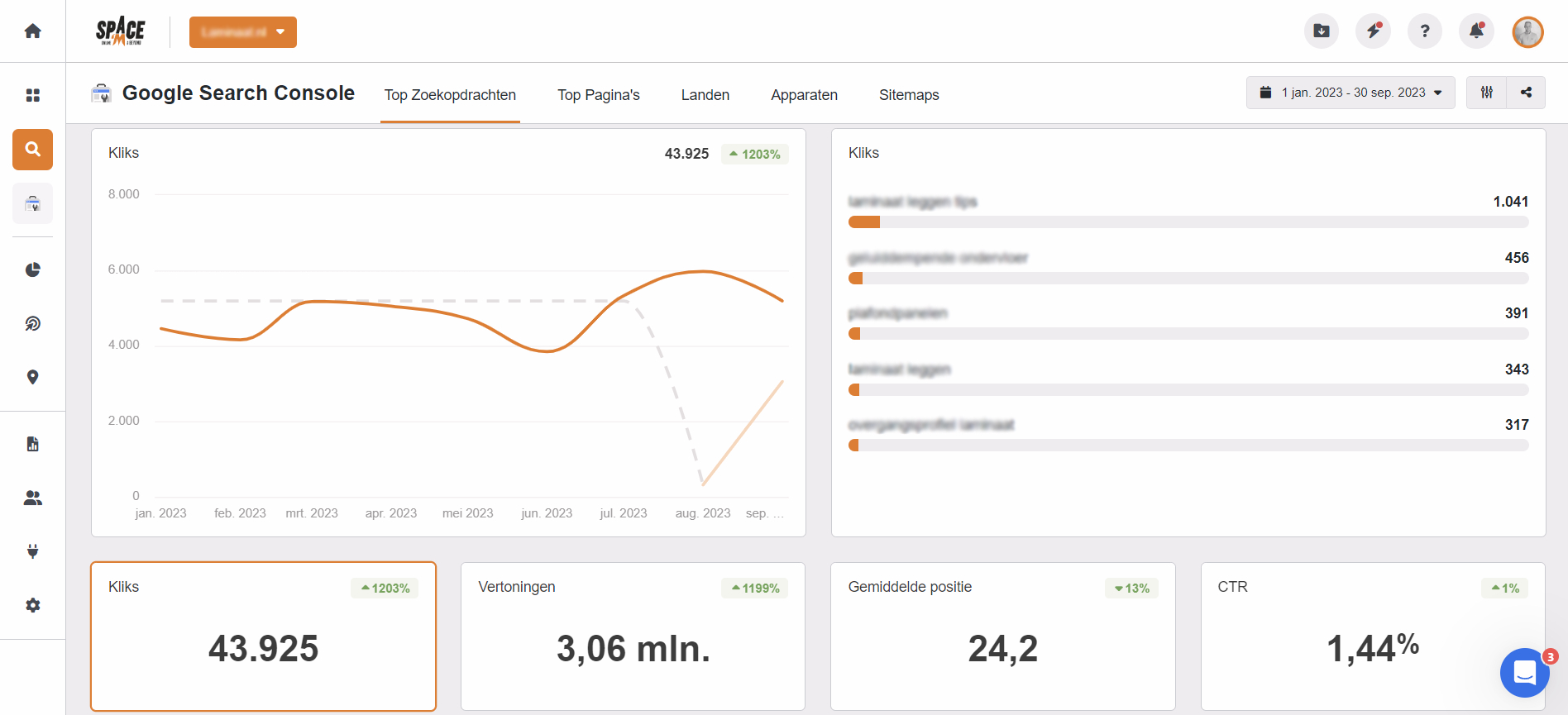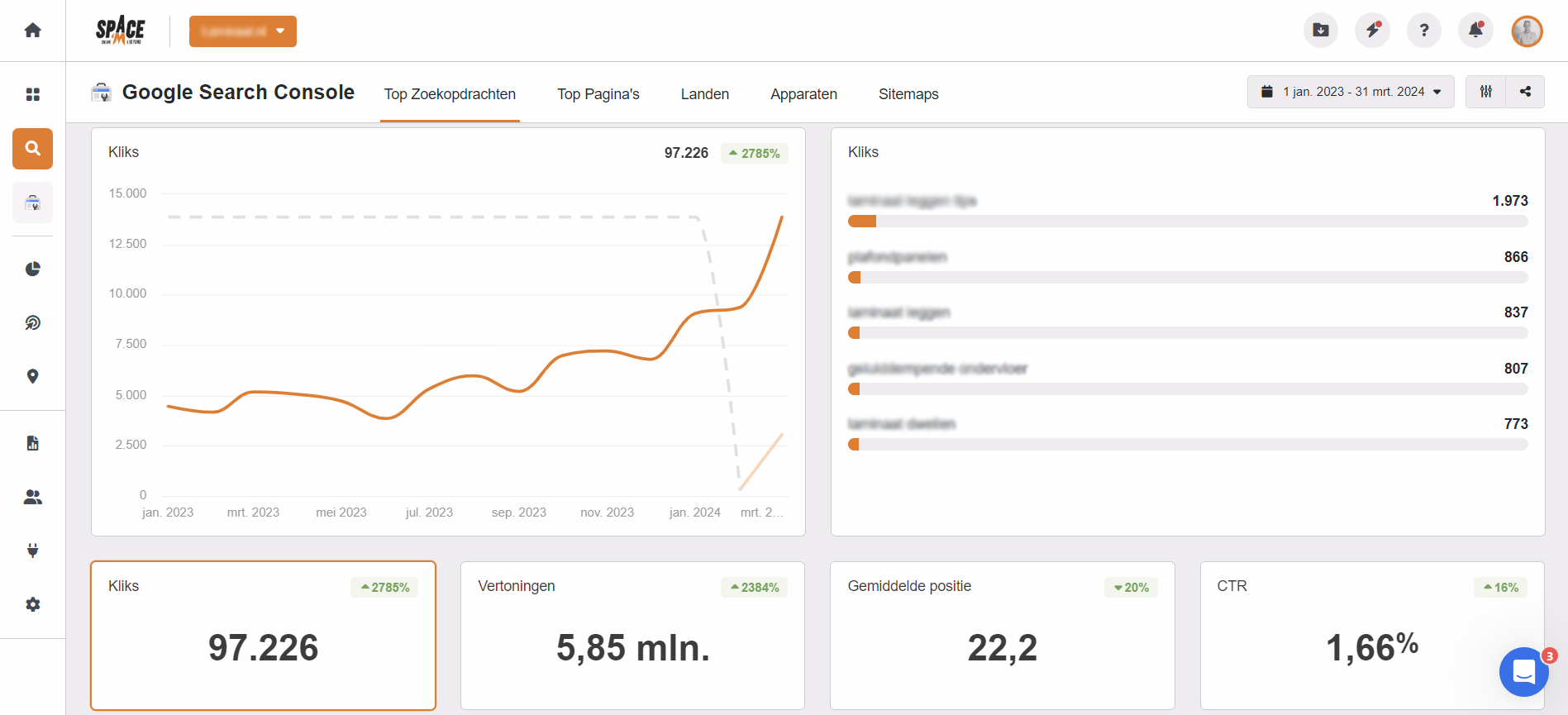For a startup, SEO can be the difference between gaining traction and being lost in the digital noise. In this guide on SEO for startup, learn why SEO is essential, when to implement it, and the best strategies to boost your online presence and growth.
Key Takeaways
- SEO is vital for startups to improve visibility, drive traffic, and sustain growth in a competitive market by leveraging keywords, meta tags, and backlinks.
- Start implementing SEO early in your startup’s journey to build a solid foundation and gain long-term advantages, though significant results may take 6 to 12 months to appear.
- Effective SEO strategies like thorough keyword research, on-page optimization, and building high-quality backlinks can significantly enhance online presence, organic traffic, and brand credibility.
Why SEO is Essential for Startups
For startups, search engine optimization forms the core of their digital marketing strategy. It involves optimizing websites for better visibility on search engines like Google, which is crucial for gaining traction in a competitive market. However, SEO isn’t merely a tool for bolstering search engine rankings; it also facilitates brand-building and promotes crucial business objectives like traffic, conversion, and revenue generation. Startups can bolster their visibility, draw potential customers, and cultivate a robust online presence by optimizing components such as keywords, meta tags, and backlinks.
Consider the example of a startup that managed to generate 1300% more visits to its website in just seven months through effective SEO practices. This kind of growth is not only achievable but sustainable, making SEO an invaluable asset for startups looking to expand their reach and build a lasting brand. Integrating SEO into their marketing approach enables startups to lay a robust foundation for enduring growth and success.
In the ever-evolving landscape of 2024, SEO remains more relevant than ever. As search engines persistently refine their algorithms, it becomes imperative to keep abreast of SEO trends and best practices to maintain and enhance search engine visibility. This implies that startups need to engage in continuous SEO endeavors to keep their websites competitive and sustain the attraction of organic traffic.
When to Start Implementing SEO
Timing is everything, especially when it comes to implementing SEO for startups. It is ideal to kickstart at the earliest, preferably during the nascent stages of your business. Integrating SEO with website development from the start ensures that the site meets technical performance and content alignment standards necessary for optimal search engine evaluation. This early start helps build a solid foundation, preparing your startup for long-term success and establishing a strong inbound marketing foundation.
Investing in SEO early allows startups to benefit from this strategy sooner, even though significant results might take 6 to 12 months to manifest. An early start can help amplify long-term advantages and secure a robust online presence right from the outset. In a cut-throat market where visibility and reach are key, this proactive SEO approach can be a game-changer.
Key Benefits of SEO for Startups
One of the most compelling reasons to invest in SEO is its cost-effectiveness. When contrasted with other digital marketing strategies such as PPC or influencer marketing, SEO generally proves to be more cost-effective. Here are some reasons why:
- SEO budgets can range between $500 and $5,000 per month, making it accessible for businesses of all sizes.
- SEO can reduce the cost of customer acquisition by an average of 87.41% compared to digital advertising, offering one of the best returns on investment (ROI).
- SEO allows businesses to target specific keywords and demographics, ensuring that their marketing efforts are focused and efficient.
This positions SEO as a compelling choice for startups aiming to optimize their marketing budgets.
SEO also significantly increases organic traffic by driving quality visitors to startup websites. Studies reveal that search engines are used by 53% of consumers for product research prior to making purchase decisions. By effectively implementing SEO, startups can attract these users, thereby increasing their market share and conversion rates. This targeted approach ensures that you’re reaching users who are actively searching for related products or services, making them more likely to convert.
Another critical advantage of SEO is the establishment of brand credibility and trust. For early-stage businesses, establishing credibility is vital, and SEO plays a significant role in this. By improving user experience and engagement on your website, SEO enhances the overall perception of your brand. Websites that are well-optimized are frequently perceived as more reliable and professional, thereby enhancing the authority of startups within their specific industries.
Finally, SEO provides long-term benefits, making it a sustainable marketing strategy for startups. As opposed to transitory marketing tactics, SEO practices yield lasting results. Once a website achieves high rankings, it tends to maintain its position with consistent efforts. This means that the initial investments in SEO continue to pay off over time, offering a superior return on investment. For startups, this sustainability is invaluable, as it supports ongoing growth and success.
Challenges Startups Face with SEO
Even with its multitude of advantages, SEO poses a few hurdles for startups. One of the primary obstacles is limited resources, such as small budgets and teams, which can hinder consistent investment in SEO activities. Even in the face of limited resources, startups should earmark a budget for SEO to optimize the outcome of their strategy. It’s essential to direct resources to the most high-impact SEO opportunities to make the most of available funds.
Another significant challenge for startups is the lack of a clear SEO strategy. Some common issues include:
- Prioritizing content creation over optimization, potentially curbing the effectiveness of SEO endeavors
- Difficulty keeping up with evolving SEO trends and algorithms due to limited resources and expertise
- Balancing lead generation and branding within their SEO strategies
These challenges can hinder the success of a startup’s SEO efforts.
Another obstacle for startups is competition, particularly in securing rankings for highly competitive keywords. Larger competitors often dominate these keywords, making it difficult for startups to gain visibility. Moreover, expanding SEO endeavors across various markets and platforms is intricate and demands constant adaptability. For SaaS startups, catering to niche markets with tailored SEO strategies is crucial, as these customer journeys are often lengthy and require visibility at multiple touchpoints.
Effective SEO Strategies for Startups
Startups need to put into action efficacious SEO strategies to surmount these challenges. Concentrating on keyword research, on-page optimization, and constructing superior backlinks can notably enhance their online presence.
These foundational elements are crucial for driving organic traffic and achieving long-term SEO success.
Conduct Thorough Keyword Research
The bedrock of any triumphant SEO strategy is keyword research. It is crucial to understand the words and phrases people use to search for products or services like yours. Grasping this can profoundly influence the success of your business. Tools like Google Suggest, Semrush, and Ubersuggest can help identify common search terms and assess their search volume and competition levels. This insight allows startups to target the most relevant keywords for their audience.
Long-tail keywords, which are more specific and less competitive than short-tail terms, are particularly beneficial for startups. These keywords are easier to rank for and can drive highly targeted traffic to your site. Additionally, review mining—pulling SEO keywords and phrases from customer feedback and reviews of competitors—provides valuable insights into what your target audience is searching for.
Startups can generate content that strikes a chord with their audience and boosts search engine visibility by concentrating on keyword research. This strategic approach to keyword optimization ensures that your SEO efforts are aligned with search intent, ultimately driving more organic traffic to your website.
Optimize On-Page Elements
For SEO success, on-page optimization is indispensable. This involves refining elements on your website to improve search engine rankings and user experience. On-page SEO encompasses various elements such as:
- Content quality
- Keyword usage
- Meta tags
- URL structure
- Internal links
These aspects play a vital role in optimizing a website for search engines. Short, keyword-rich URLs generally perform better in search engine rankings than longer URLs.
Internal linking from high-authority pages to those that need more authority is also crucial for on-page SEO. Nonetheless, it’s crucial to refrain from using excessive internal links, as their effectiveness may be diluted. Additionally, focusing on user experience by avoiding common mistakes like keyword stuffing and creating excessively long articles can enhance SEO performance.
Build High-Quality Backlinks
Constructing superior backlinks forms another integral part of SEO. Backlinks act as votes of confidence on the internet, signaling to search engines that your content is valuable and authoritative. Acquiring high-quality backlinks from authoritative sites that are relevant to your niche can significantly boost your search engine rankings.
Guest blogging is an effective strategy for generating backlinks and increasing audience reach. By sharing your expertise on other platforms, you can attract more visitors to your site and enhance your content distribution. Another tactic is broken link building, which involves finding broken links on other sites and offering your content as a replacement. This not only helps you gain backlinks but also builds relationships with other website owners.
Nevertheless, it’s critical to dodge dubious link-building practices that might result in penalties from search engines. Hiring a reputable SEO agency can help ensure that your link-building efforts are ethical and effective. Startups can establish a robust backlink profile conducive to enduring SEO success by prioritizing quality over volume.
Technical SEO for Startups
Enhancing your website’s technical aspects is critical to enabling search engines to efficiently crawl and index your content, thereby improving your online visibility. This practice, known as technical SEO, plays a vital role in optimizing your website’s performance. For startups, focusing on technical SEO can enhance organic traffic and overall site performance, ensuring that your website remains competitive in search engine rankings.
Conduct a Technical SEO Audit
The initial step towards identifying and addressing issues impacting website performance is conducting a technical SEO audit. This audit involves analyzing elements such as:
- title tags
- broken links
- indexing issues
- site structure
Regular technical SEO audits help maintain your website’s health and adapt to algorithm changes.
By performing frequent audits, startups can ensure their websites are optimized for search engines and provide a seamless user experience. This proactive approach to technical SEO can prevent potential issues from hindering your site’s performance and search engine visibility.
Improve Site Speed and Mobile-Friendliness
Site speed is a pivotal element for both user experience and search engine rankings. Faster load times can prevent the loss of potential customers and improve search engine results. Optimizing images and minimizing excessive visuals are essential steps to enhance page speed.
Mobile responsiveness holds equal importance for startups’ websites. Ensuring your site is mobile-friendly impacts user experience and influences search engine rankings. Google gives preference to mobile versions of sites for indexing, making mobile optimization a priority. This includes optimizing layouts, navigation, and content for seamless access on mobile devices.
A user-friendly website can enhance rankings, traffic, user experience, and conversions. By focusing on site speed and mobile-friendliness, startups can enhance their online presence and attract more organic traffic.
Content Marketing for Startup SEO
Content marketing serves as a potent instrument for propelling organic growth and carving out authority in your industry. For startups, creating targeted, high-quality content and developing content clusters can significantly improve search engine rankings and build topical authority.
Create High-Quality, User-Centric Content
The creation of superior, user-oriented content is vital for captivating your target audience and elevating SEO performance. Content serves as a valuable marketing asset and is essential for engaging human readers. By focusing on creating a few solid pieces of content, startups can drive significant traffic and position themselves as leaders in their respective topics.
Balancing creativity with SEO optimization is key to producing engaging yet keyword-rich content. Semantic SEO, which entails the utilization of terms relevant to the target keyword, can assist in content optimization and enhance its relevance to user queries. Additionally, data-driven content often attracts more backlinks because it provides valuable statistics and insights.
To uphold consistency and quality, startups should establish a well-organized content marketing calendar that facilitates regular distribution of targeted content, including social media marketing. Writing about local or industry-specific news can also position your business as a local authority and attract nearby users. By focusing on these strategies, startups can create content that resonates with their audience and enhances their SEO efforts.
Develop Content Clusters
The strategic approach of developing content clusters aids in building topical authority and enhancing search engine rankings. Content clusters or hubs involve creating comprehensive guides or articles that cover different aspects of a specific topic, thereby positioning your website as an expert resource.
For example, publishing ultimate guides can attract backlinks from other bloggers who link to them as comprehensive resources. This not only boosts your website’s authority but also improves its visibility in search engine results.
By creating content clusters, startups can enhance their SEO performance and establish themselves as thought leaders in their industry.
Local SEO Strategies for Startups
For startups aiming to draw local customers and boost their visibility in location-based searches, local SEO is fundamental. By optimizing their Google My Business profile and leveraging local keywords, startups can enhance their local search rankings and drive more foot traffic to physical stores.
Optimize Google My Business Profile
A cardinal step in local SEO is creating and authenticating a Google My Business profile. This ensures that your business information is accurate and easily accessible to potential local customers. Selecting the correct main and additional categories for your business profile helps Google accurately rank your business, improving its visibility in local search results.
Adding posts to your Google My Business profile and engaging on social media can further enhance your local SEO efforts. Encouraging customers to leave online reviews and responding authentically to them can also boost your local search presence. By optimizing your Google My Business profile, you can attract more local customers and improve your search engine visibility.
Leverage Local Keywords
The integration of geo-targeted keywords into your website content and meta descriptions is essential for enhancing local search rankings. Local keyword research involves finding terms that potential customers in your area are searching for. Using these keywords in:
- URLs
- Title tags
- Headers
- Content
Improving your local SEO performance can also positively impact your organic search results and benefit from professional seo services.
Choosing relevant keywords for your Google My Business profile can enhance your visibility in Google and Google Maps. By leveraging local keywords effectively, startups can attract more nearby customers and improve their search engine rankings.
Monitoring and Measuring SEO Performance
The monitoring and measurement of SEO performance is imperative for making data-driven tweaks and refining your strategy. Startups can glean insights into website traffic, user behavior, search queries, and site indexing by employing analytics tools such as Google Analytics and SEO tools like Search Console.
Use Google Analytics and Search Console
Google Analytics provides valuable insights into website traffic, user behavior, and conversions. By analyzing these metrics, startups can understand what works and what doesn’t, allowing them to optimize their site accordingly.
Google Search Console offers reports to monitor:
- search queries
- impressions
- clicks
- site indexing
This helps startups track their SEO performance and identify areas for improvement.
Using Databox’s SEO dashboard software, startups can monitor and display important metrics. This helps in assessing the effectiveness of their SEO efforts and making strategic decisions based on data. By leveraging these tools, startups can enhance their SEO success and achieve their business goals.
Regularly Review and Adjust SEO Strategy
Keeping up-to-date with contemporary SEO tactics is key to preserving and enhancing search engine rankings. Regularly reviewing and adjusting your SEO strategy based on performance data ensures that your efforts are aligned with the latest trends and best practices. This proactive approach helps avoid outdated tactics that may harm your website’s rankings and performance.
By focusing on key indicators and avoiding cluttering reports with large amounts of data points, startups can make informed decisions and optimize their SEO strategy effectively. Regular assessment and analysis of your website’s SEO status can lead to better results and sustained growth.
Common SEO Mistakes Startups Should Avoid
For startups to retain their search engine visibility and evade penalties, it’s critical to avoid common SEO blunders. Ensuring the relevance of SEO resources and verifying the expertise of any outside help can prevent costly errors.
Avoid Black Hat SEO Techniques
Black hat SEO techniques represent unethical methods contravening Google’s guidelines. These practices can lead to severe penalties or even delisting by search engines. Some examples of black hat SEO techniques include:
- Using private blog networks (PBNs) to manipulate Google’s PageRank algorithm
- Keyword stuffing
- Cloaking
- Hidden text or links
- Buying links or participating in link schemes
It is important to avoid these techniques and focus on ethical SEO practices to ensure long-term success and visibility in search engine rankings.
Keyword stuffing, which involves the unnatural insertion of excessive keywords into content, can render it unreadable and attract penalties. Content cloaking, which misleads users about the content, is another black hat tactic that risks penalties. Even self-plagiarized article duplication is easily detected by algorithms and can be punishable.
Startups should prioritize ethical SEO practices, focusing on producing quality content and avoiding quick fixes that can harm their long-term success. By adhering to best practices, startups can build a sustainable SEO strategy that supports growth and credibility.
Don’t Neglect Mobile Optimization
In today’s digital landscape, where mobile traffic accounts for a substantial part of web traffic, mobile optimization is paramount. Failing to optimize for mobile can result in poor user experience and lower search rankings. Ensuring your website is mobile-friendly by optimizing layouts, navigation, and content is essential for enhancing user experience and improving search engine visibility.
By prioritizing mobile optimization, startups can attract more users and improve their search engine rankings. This proactive approach ensures that your website remains competitive and accessible to a broader audience.
In what other industries does Space’M Online SEO?
Space’M Online extends its SEO expertise across a diverse range of industries beyond finance, legal, insurance, and e-commerce. Our team is adept at crafting tailored SEO strategies for sectors such as healthcare, education, real estate, and technology.
By understanding the unique challenges and opportunities within each industry, we help businesses enhance their online presence, drive targeted traffic, and achieve sustainable growth. Whether you’re a local business or an international enterprise.
Space’M Online is committed to delivering results that align with your specific industry needs and goals, take a look at the following industry page to get more information:
- SEO for law company
- SEO for banking
- SEO for fintech
- SEO for SaaS
- SEO for real estate
- SEO for architect
- SEO for oil and gas
Frequently asked questions
We recognize that you might have inquiries about our SEO services for start-up companies and our modus operandi. Here are some frequently asked questions to help clarify our approach and the benefits of partnering with Space’M Online:
Why is SEO essential for startups?
SEO is essential for startups because it helps them build a strong online presence, increase organic traffic, and promote growth through optimization of keywords, meta tags, and backlinks. It’s a key factor in gaining visibility and reaching potential customers.
What are the key benefits of SEO for startups?
Investing in SEO for your startup can bring cost-effective marketing, increased organic traffic, and long-term brand credibility, leading to sustainable benefits for your business.
What are common challenges startups face with SEO?
Startups commonly struggle with limited resources, unclear strategy, changing SEO trends, and competition from bigger companies, making SEO a challenging aspect to master.
How can startups avoid common SEO mistakes?
To avoid common SEO mistakes, startups should steer clear of black hat techniques, prioritize the relevance of their SEO resources, and carefully vet any external support for SEO expertise. Quality and compliance are key to successful SEO strategies.
When should startups start implementing SEO?
Startups should start implementing SEO early on to establish a strong foundation for long-term success and growth. This will help them reach their target audience and stay competitive in the market.




















